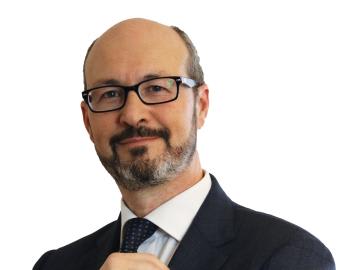Our dedicated private client tax services team offers innovative models aimed at supporting families and businesses in both succession and tax planning, as well as in managing significant disruptions, through a specialized and multidisciplinary approach, with international expertise. We are able to offer our clients advice that includes the input of our colleagues at RSM offices in the other 120 countries where we are present.
Relying on RSM means being guided by professionals expert in important wealth or succession decisions, sharing a path where every actor plays a key role. We work in synergy with individuals and families, their businesses, and their trusted advisors to create projects that will be managed over time, either with our continued support or independently by the clients themselves.
We protect, enhance, and ensure the continuity of both business and personal assets through an integrated approach to all dimensions of risk associated with wealth transfer. This involves timely planning, correct valuation, compliance, and the selection of the most appropriate protection tools.
Our distinctive specialization is the Trust, a legal instrument developed and widely used in Anglo-Saxon countries. It has been operational and recognized in Italy for over thirty years. A Trust can be used in cases where traditional civil law instruments fail to provide efficient solutions for families and businesses.
The Trust is particularly useful for:
- organizing a smooth generational transfer
- effectively managing joint heirship
- making extraordinary corporate transactions more efficient
- executing escrow operations
- acting as an executor in complex successions
- managing financial investments
- planning wealth management in the later stages of life
- offering an innovative model for the protection of vulnerable individuals
Main Areas of Application of the Trust Institution
The organization of generational changeover is one of the most common uses of the Trust, which, due to its characteristics, can be particularly useful when traditional civil law legal instruments fail to provide efficient solutions.
The Trust can be used, due to its flexibility, in different ways within the commercial field. The separation between management and economic entitlement, a key feature of the Trust, is difficult to achieve with the traditional instruments of our legal system. Examples include escrow arrangements in M&A transactions, the management of a bond loan, the establishment of a trust holding, the functioning of a put or call option, the execution of a project financing operation, or the implementation of a stock option plan.
Typically, generational changeover is planned for the later stages of life, when the arrangements for descendants are clearer. But what happens in the event of unforeseen circumstances while a person is still fully active in her/his own professional life? This is a delicate issue, as there may be minor children and stakes in productive activities involved. This type of Trust is characterized by being inactive (until the unforeseen event occurs) and having low management costs.
Establishing a Trust also means dealing with tax regulations.
RSM’s multidisciplinary approach enables us to address the complexities of the tax system with precision and expertise, offering clients tailored solutions that allow them to optimize the management of the so-called "tax variable."
In the case of vulnerable individuals for whom there are no conditions for the appointment of a guardian, the Trust allows for the separation between management (entrusted to the "trustee" with oversight by the "guardian") and the financial entitlement, to the benefit of the vulnerable person. When there is a guardian, the Trust introduces an innovative model of collaboration with the judge supervising a guardianship and the guardian, as encouraged by the “Dopo di Noi” Law (i.e. an Italian Law providing for the creation of a fund for the assistance and support of individuals with disabilities who do not have family assistance, including tax relief, exemptions, and incentives for taking out insurance policies), recognizing a central role for the family of the vulnerable person.



